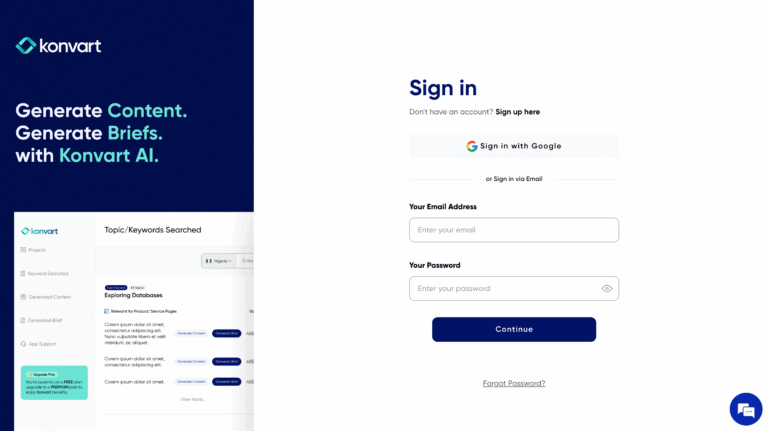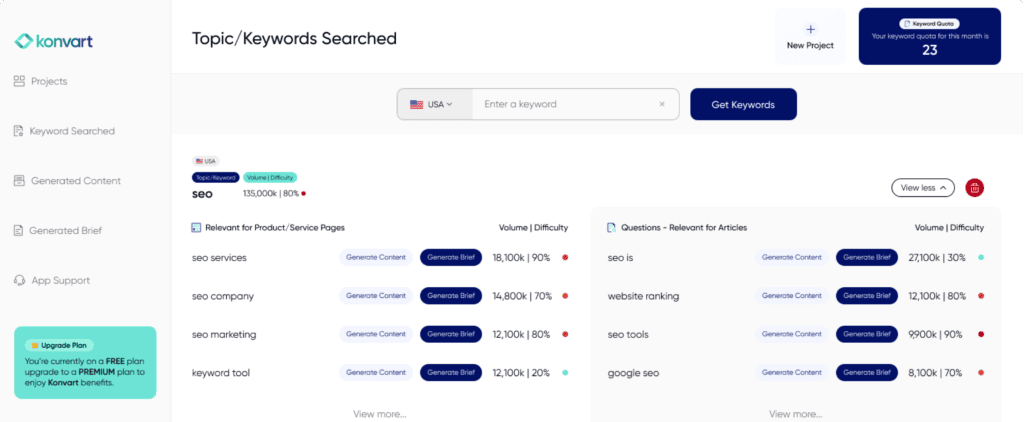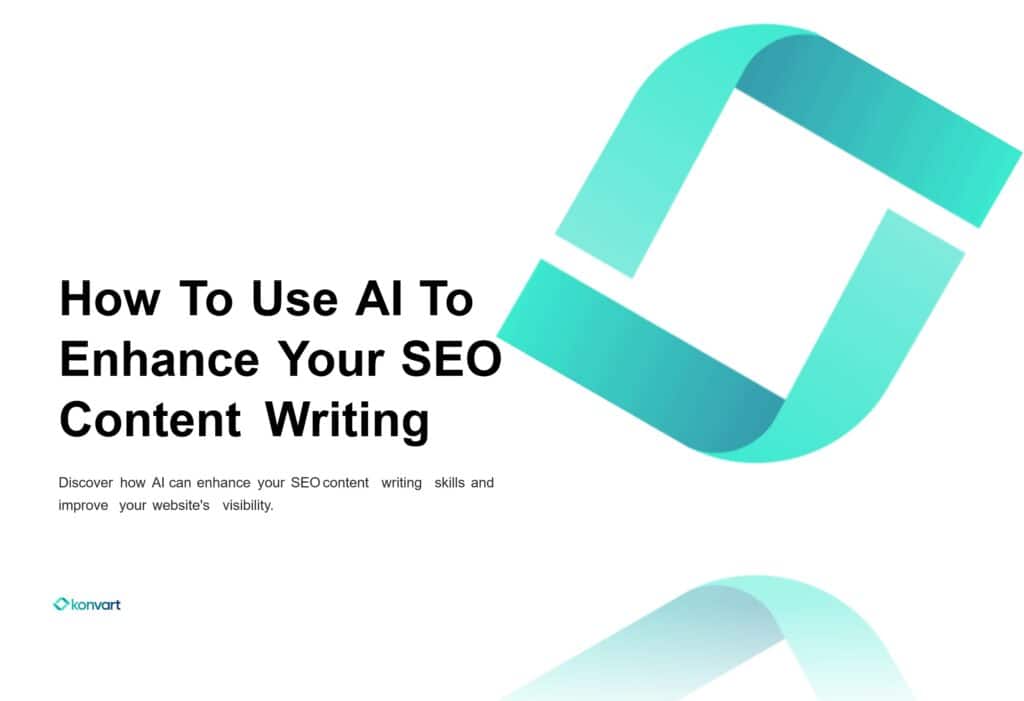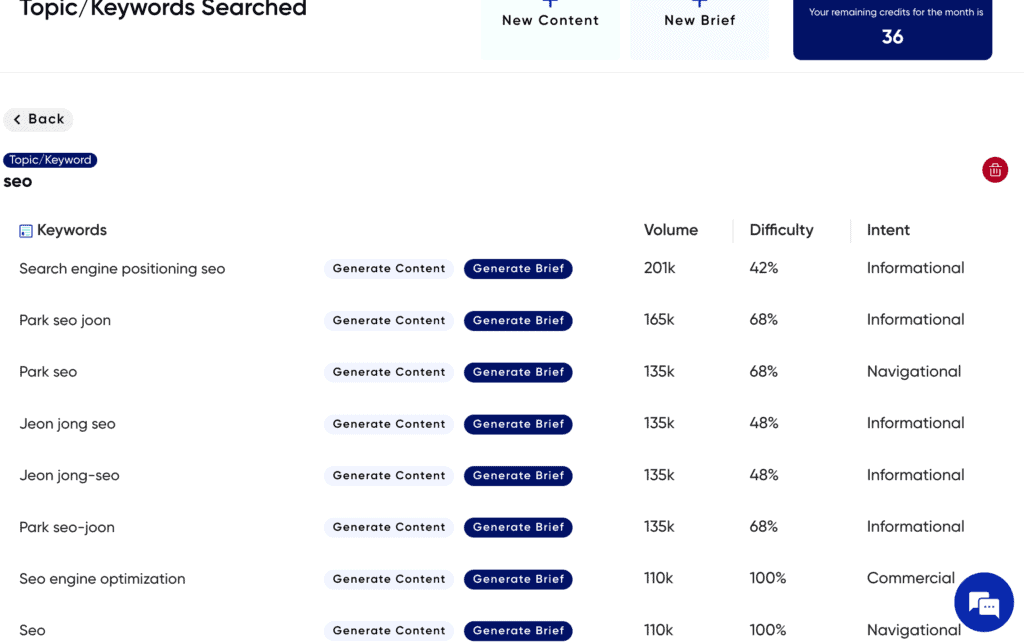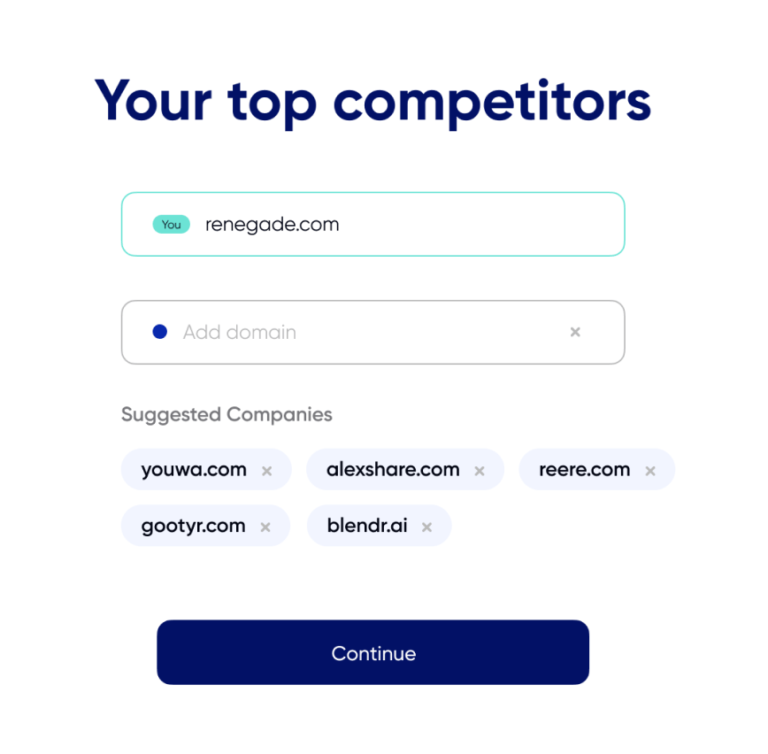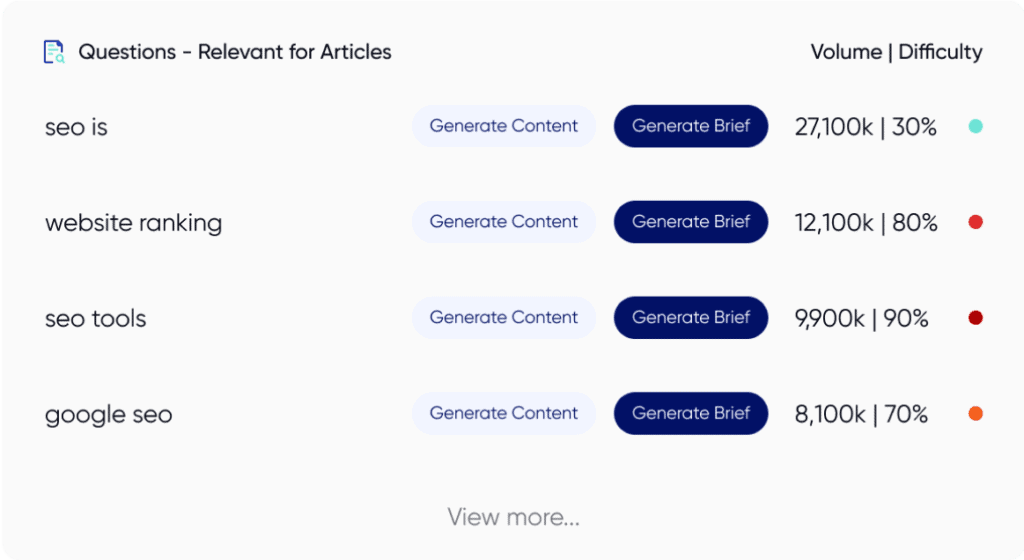If you’re a business owner or new to the concept, you may be wondering, “What is SEO?”
In simple terms, SEO stands for Search Engine Optimization, which is optimizing your website to increase its visibility on search engines like Google. By implementing SEO strategies, you can improve your website’s rankings, drive more organic traffic, and ultimately grow your business online.
In this article, we’ll delve deeper into the world of SEO and provide valuable insights to help you navigate this complex but rewarding marketing channel. We’ll discuss what SEO is, how to use it, and how to learn and become advanced in it.
Benefits and Importance of SEO:
- Increased Visibility: SEO helps improve your website’s ranking on search engine results pages, making it easier for potential customers to find you online.
- Targeted Traffic: By optimizing your website for specific keywords, you can attract visitors actively searching for products or services you offer.
- Cost-Effective Marketing: Compared to traditional advertising methods, SEO is a more affordable way to reach your target audience and drive organic traffic to your website.
- Credibility and Trust: Websites that appear higher in search results are often perceived as more trustworthy and credible by users, leading to increased brand recognition and customer loyalty.
- Improved User Experience: SEO involves optimizing your website for better performance, faster loading times, and mobile responsiveness, which can enhance the overall user experience and keep visitors engaged.
- Competitive Advantage: By investing in SEO, you can stay ahead of your competitors and establish a strong online presence in your industry.
- Long-Term Results: Unlike paid advertising, the effects of SEO are long-lasting, providing continuous visibility and traffic to your website over time.
Types of SEO
- On-Page SEO: This type of SEO focuses on optimizing individual web pages to improve their search engine rankings. This includes optimizing content, meta tags, headings, and images to make them more relevant to specific keywords.
- Off-Page SEO: Off-page SEO refers to activities done outside of your website to improve its search engine rankings. This includes building backlinks from reputable websites, social media marketing, and influencer outreach.
- Technical SEO: Technical SEO involves optimizing your website to improve its speed and mobile-friendliness and ensuring that search engines can crawl and index your site effectively.
- Local SEO: Local SEO is important for businesses that target a local audience. This type of SEO focuses on optimizing your website for local search results, such as appearing in Google Maps and local business listings.
The above are the four main areas. However, there are also two other aspects that were of a huge focus in the past few years
- Voice Search SEO: With the rise of voice search technology, optimizing your website for voice search queries is becoming increasingly important. This type of SEO involves using natural language keywords and providing concise, relevant answers to common voice search queries.
- E-Commerce SEO: E-commerce SEO focuses on optimizing online stores to improve their search engine rankings and drive more organic traffic. This includes optimizing product pages, implementing structured data markup, and improving site navigation for a better user experience.
Although e-commerce SEO is still relevant today, most of its components are also relevant to non-e-commerce websites.
Differentiating between SEO, SEM, and PPC
When it comes to digital marketing, it’s important to understand the differences between SEO, SEM, and PPC.
SEO, or search engine optimization, focuses on improving your website’s visibility in organic search results. This involves optimizing your website’s content, meta tags, and backlinks to rank higher in search engine results pages (SERPs) without paying for placement.
SEM, or search engine marketing, encompasses both SEO and paid advertising efforts. While SEO is focused on organic results, SEM includes paid search advertising like Google AdWords. This allows you to bid on keywords to have your ads displayed at the top of search results.
PPC, or pay-per-click advertising, is a type of SEM where advertisers pay a fee each time their ad is clicked. This model allows for immediate visibility in search results and can be a highly targeted and cost-effective way to drive traffic to your website.
In summary, SEO is focused on organic search results, SEM includes both organic and paid efforts, and PPC is a specific type of paid advertising within SEM. Understanding the distinctions between these terms can help you develop a comprehensive digital marketing strategy for your business.
To draw a better contrast, we will look at both side by side using two key points.
| Organic Search | Paid Search |
| Organic search refers to the natural search engine results that appear based on the relevance of the content to the user’s query. These results are not influenced by any payment to the search engine. | Paid search, on the other hand, involves advertisers paying to have their website appear at the top of search engine results for specific keywords. These results are labeled as ads and are typically placed above or alongside organic search results. |
| Organic search results are seen as more trustworthy and credible by users, as they are based on the relevance of the content to their search query. | Paid search results, while still relevant, may be perceived as biased due to the payment involved. |

You should note that both organic and paid search are important components of a comprehensive SEO strategy. Organic search helps improve website visibility and credibility over time, while paid search can provide immediate visibility and drive targeted traffic to your site.
To maximize your SEO results, it is essential to strike a balance between organic and paid search efforts. By focusing on creating high-quality, relevant content for organic search and strategically using paid search to supplement your efforts, you can increase your website’s visibility and drive more traffic to it.
On-page SEO basics
On-page SEO refers to the optimization of individual web pages to rank higher and earn more relevant traffic in search engines. Here are some key on-page SEO elements to focus on:
1. Keywords
This has to do with researching and targeting relevant keywords for each page. There are several tools for keyword research, including Konvart.

When doing keyword research, these are the three main things:
- Search volume – how many searches occur for that keyword per month
- Keyword difficulty – how hard it will be to rank for that keyword when the top ten competitors are analyzed
- Intent – what type of content is Google expecting for that keyword
Konvart provides all that, and you can make a decision as you review the keywords to create the right content or content brief immediately.
Another thing you should know about keywords is how to use them. We will take a deep dive into this in another post. The basics include them naturally in the page title, headings, meta description, and content.
2. Content
When doing SEO, content is key. You must create high-quality, unique, and valuable content that is relevant to your target audience.
You can also create quality SEO content with Konvart. Konvart ensures that your content contains all the right elements to help it compete with competitors’ content.
When creating content, ensure you use heading tags (a heading structure that includes a H1 and some H2s and H3s), bullet points, and images to improve readability.
3. Meta tags
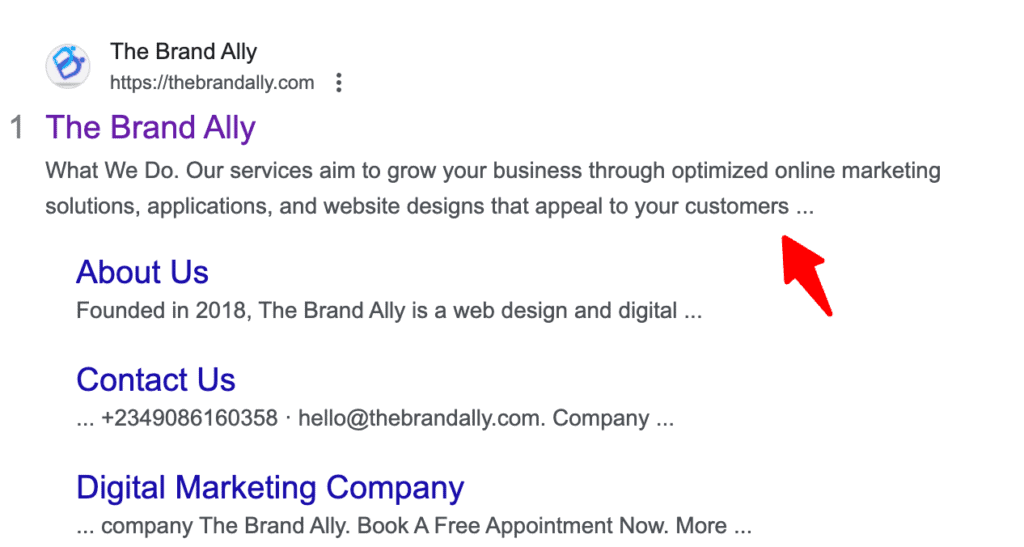
Your meta tags include your title and description in search results. Write compelling meta titles and descriptions that accurately describe the content of the page and entice users to click.
4. URL structure
Use clean and descriptive URLs that include relevant keywords. Avoid using numbers or random characters in URLs.
5. Internal linking
Link to other relevant pages on your website to improve navigation and help search engines understand the structure of your site. Internal linking also helps increase the time users spend on your website, which can result in a higher chance of conversion.
6. Image optimization
Image optimization covers two key things – alt texts and image sizes. Alt texts help search engines understand the image and its purpose. Use descriptive file names and alt text. Regarding image sizes, it’s best they are small to ensure your site loads fast; compress images to improve loading speed and include them strategically throughout your website to enhance user experience. Also, a good practice is to use modern formats such as WebP or AVIF.
Technical SEO
Technical SEO refers to optimizing your website’s technical elements to improve its search engine rankings. This includes site speed, mobile-friendliness, indexing, crawling, and structured data.
Ensuring that your website is technically sound makes it easier for search engines to crawl and index your pages, ultimately leading to better visibility in search results. Paying attention to technical SEO can help improve user experience, increase organic traffic, and drive more conversions on your website.
Technical SEO involves a lot, so I will only explain the simplest aspects in this blog and leave the others for another article.
1. Mobile optimization
This is a no-brainer since most of the world’s traffic occurs on mobile phones. So, ensure your website is mobile-friendly and responsive to provide a seamless user experience across devices. Your website developer usually does this job. Test your site across desktop, mobile, and tab.
2. Page speed
This has to do with improving loading times by optimizing images, reducing server response times, and leveraging browser caching. Google’s PageSpeed Insights is key to testing and improving your page speed.
3. Organizing your site for better visibility
One of the key aspects of SEO is organizing your website in a way that makes it easy for search engines to crawl and index your content. Additionally, organizing your site can improve the user experience, making it easier for visitors to navigate and find the information they seek. This can lead to longer dwell times, lower bounce rates, and, ultimately, more conversions for your business.
Organizing your site is about creating a clear site structure with well-defined categories and subcategories, using descriptive URLs, and optimizing your internal linking structure.
Off-page optimization
Off-page optimization refers to the strategies and techniques used outside of your website to improve its search engine rankings. This includes building backlinks from other reputable websites, social media marketing, influencer partnerships, and online reputation management.
1. Backlinks
Backlinks are crucial for off-page SEO as they signal to search engines that your website is trustworthy and authoritative. Link building is the process of proactively acquiring backlinks from other websites to your own. These links act as “upvotes” for your website, signaling to search engines that your content is valuable and trustworthy.
However, it’s important to focus on quality over quantity when it comes to backlinks. A few high-quality backlinks from authoritative sites will have a greater impact on your rankings than numerous low-quality backlinks.
Furthermore, building a diverse link profile with a mix of different types of links (such as guest posts, directory submissions, and social bookmarks) can help boost your website’s authority and visibility.
Avoid black hat tactics like buying links or engaging in link schemes, as these can result in penalties from search engines. Instead, focus on creating high-quality content that naturally attracts links from other websites and utilizing tactics like digital PR.
Another thing to remember is to monitor your link profile regularly and conduct link audits to help identify any toxic or spammy links that may be harming your SEO efforts. Google ignores low-quality links in some cases, but in others, you may have to remove or disavow these links to maintain a healthy backlink profile.
2. Social Media
Social media marketing plays a significant role in off-page optimization by increasing brand awareness, driving traffic to your website, and generating social signals that can improve your search engine rankings. Engaging with your audience on platforms like Facebook, Twitter, and Instagram can help boost your online presence and attract more visitors to your site.
Influencer partnerships are another effective off-page SEO strategy. Collaborating with influencers in your industry can help you reach a larger audience, build credibility, and earn valuable backlinks from their websites or social media profiles.
Online Reputation Management and Local Link Building
Online reputation management is essential for maintaining a positive image of your brand online. Monitoring and responding to reviews, managing your online listings, and actively engaging with customers can all contribute to a strong online reputation that can positively impact your search engine rankings.
How do Search Engines Work?
Search engines work by using complex algorithms to crawl, index, and rank websites based on various factors. When a user enters a search query, the search engine retrieves relevant results from its index and presents them in order of relevance.
Google orders and ranks search results based on a complex algorithm that takes into account various factors. These factors include the relevance of the content to the search query, the quality of the website, the authority of the website, and the user experience.
Google’s algorithm also considers factors such as the number of backlinks pointing to a website, the freshness of the content, and the website’s mobile-friendliness. By analyzing these factors, Google determines the most relevant and authoritative websites to display at the top of the search results.
It is important for businesses to optimize their websites for these factors in order to improve their search engine rankings and increase their visibility online.
Understanding Search Engine Algorithms
Search engine algorithms are the complex formulas used by search engines to determine the ranking of websites in search results. These algorithms consider various factors such as keywords, content quality, backlinks, and user experience.
One key aspect of search engine algorithms is the importance of relevant keywords. By including relevant keywords in your website’s content, meta tags, and URLs, you can increase your site’s chances of ranking higher in search results for those specific keywords. Search engines also consider the quality and relevance of your content when determining your website’s ranking.
Another important factor in search engine algorithms is backlinks. Backlinks are links from other websites that point to your site. Search engines consider backlinks as a vote of confidence in your website’s authority and credibility. Building a strong backlink profile with high-quality, relevant websites can improve your website’s ranking in search results.
User experience is also a crucial factor in search engine algorithms. Search engines prioritize websites with a positive user experience, such as fast loading times, easy navigation, and mobile responsiveness. By optimizing your website for user experience, you can improve your website’s ranking in search results and attract more visitors to your site.
Search Intent and User Signals
Understanding search intent is crucial in SEO, as it helps you create content that aligns with users’ needs. Search intent deals with what Google understands to be the type of content users want based on their search query – Konvart also provides this information.
Search intent can be categorized into four main types:
- Informational – searchers want information
- Navigational – they want to find a particular page
- Transactional – searchers want to buy a product
- Commercial – searchers are considering products (e.g. this vs that)
When doing keyword research, pay attention to the kind of results in the SERP and ensure your content matches the needs of searchers.
Influencing How Your Site Looks in Google Search Results
After your content has been indexed by Google, analyze user signals such as click-through rates, bounce rates, and time on page to understand how well your content meets user needs.

When it comes to SEO, one of the key factors to consider is how your website appears in Google search results. By optimizing your site’s meta tags, title tags, and meta descriptions, you can control how your website is displayed to users. This includes choosing relevant keywords and crafting compelling meta descriptions that entice users to click on your site.
Additionally, implementing structured data markup can enhance your search result appearance by adding rich snippets such as star ratings, reviews, and product prices. Focusing on these elements can improve your site’s visibility and click-through rates in Google search results.
Creating an SEO strategy
Developing an effective SEO strategy is crucial for improving your website’s visibility and driving organic traffic. Start by conducting keyword research to identify relevant terms that your target audience is searching for. Use Konvart to find high-volume keywords with low competition.

Next, write high-quality, relevant, and valuable content, and optimize your website’s on-page elements, including meta titles, descriptions, and headers, to include your target keywords. Then add internal links to improve navigation and user experience.
Off-page SEO is equally important. Build backlinks from reputable websites to establish credibility and authority in your industry. Engage in guest blogging, social media promotion, and influencer collaborations to expand your online presence.
Regularly monitor and analyze your SEO efforts using tools like Google Analytics and Search Console. Track your keyword rankings, organic traffic, and conversion rates to make data-driven decisions for continuous improvement. Adjust your strategy as needed to adapt to changing algorithms and trends.
Setting Objectives for Different Types of Businesses
Setting clear objectives is crucial for the success of your online presence. Different types of businesses will have different goals and priorities when it comes to SEO.
For e-commerce businesses, objectives may include increasing online sales and improving conversion rates. Service-based businesses may focus on generating leads and increasing website traffic. Local businesses may prioritize improving their visibility in local search results.
Regardless of the type of business you have, it’s important to align your SEO objectives with your overall business goals. This will help you stay focused and measure the success of your SEO efforts effectively. Take the time to identify your target audience, research relevant keywords, and set specific, measurable objectives that align with your business objectives. Tie what you do with SEO with your marketing efforts in general.
Emerging SEO trends
As search engines continue to evolve, staying up-to-date with emerging SEO trends is crucial for maintaining visibility and relevance online.
One key trend to watch is the increasing importance of user experience, with search engines like Google placing a greater emphasis on factors such as site speed, mobile-friendliness, and secure browsing. Our agency recently worked on a website redesign initiative for a client that resulted in a 50% increase in traffic just from a better user experience on the new site.
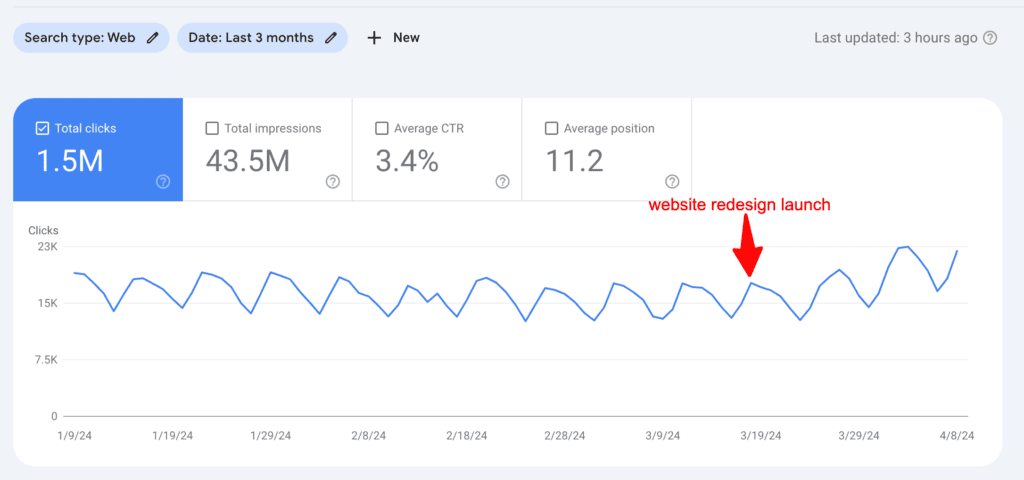
Additionally, voice search is becoming more prevalent, requiring businesses to optimize their content for natural language queries.
Another trend to keep an eye on is the new SERP features introduced monthly. As a newbie to SEO, focus on featured snippets first, which are selected search results that appear at the top of the organic results page. Optimizing content for featured snippets can help drive more traffic to your site and establish your brand as an authority in your industry.
One big trend (the biggest, really) is the use of artificial intelligence and machine learning in search algorithms. This is shaping the way SEO is approached, making it essential for businesses to adapt their strategies accordingly.
Another growing trend is incorporating video content into your SEO strategy. Videos, especially shorts, are becoming increasingly popular among online users. Google is also testing a section in search results for short videos. So ensure you publish videos on Youtube and embed them on your website. Optimize the video titles, descriptions, and tags with relevant keywords.
Lastly, the importance of local SEO cannot be understated, especially for brick-and-mortar businesses looking to attract customers in their area. Optimizing for local search terms and creating a Google Business Profile can help businesses connect with their target audience and drive foot traffic to their physical locations.
AI and SEO: What’s coming?
As technology continues to advance, the integration of artificial intelligence (AI) in SEO strategies is becoming increasingly prevalent. AI tools can analyze vast amounts of data at a speed and scale that humans simply cannot match. This allows for more efficient keyword research, content optimization, and link building – we can already see that with Konvart.
In the future, we can expect AI to play an even larger role in SEO. Machine learning algorithms will become more sophisticated, enabling them to understand user intent better and deliver more personalized search results. Voice search optimization will also become a key focus as more people use devices like smart speakers to search for information.
Overall, AI technology will heavily influence the future of SEO. Business owners and SEO newbies should stay informed about the latest developments in AI and how it can be leveraged to improve their search engine rankings. By embracing AI tools and techniques, businesses can stay ahead of the curve and ensure their online presence remains competitive.
SEO Tools
SEO tools and metrics are crucial in optimizing your website for search engines. Tools like Google Analytics, Konvart, and Moz can provide valuable insights into your keyword data, content optimization, website performance, keyword rankings, and backlink profile.
These tools help you track important metrics such as organic traffic, bounce rate, and conversion rates to measure the effectiveness of your SEO efforts. By analyzing this data, you can identify areas for improvement and make informed decisions to boost your search engine rankings.
Additionally, monitoring key metrics like domain authority, page authority, and keyword difficulty can help you understand your website’s overall SEO health and competitiveness. Leveraging these tools and metrics effectively can help you stay ahead of the competition and drive more organic traffic to your website.
Best SEO Tools for Website Optimization
When it comes to optimizing your website for search engines, having the right tools at your disposal can make a significant difference in your results. Here are some of the best SEO tools that can help you improve your website’s visibility and rankings:
- Google Analytics: This free tool provides valuable insights into your website’s performance, including traffic sources, user behavior, and conversion rates. Analyzing this data lets you make informed decisions to improve your SEO strategy.
- Konvart: Konvart provides keyword data, content optimization and writing, in-depth content briefs for content writers, and easy publishing to websites. This helps you scale your marketing at less costs.
- Moz Pro: Another popular SEO tool that provides a range of features to help you optimize your website, including keyword research, site audits, and rank tracking. Moz Pro also offers valuable insights into your competitors’ strategies.
- Ahrefs: Known for its robust backlink analysis capabilities, Ahrefs is a powerful tool for improving your website’s authority and rankings. It also offers features for content analysis and site audits.
There are also other tools that you might need to manage meta tags, XML sitemaps and more, such as a WordPress SEO plugin – this is only for those whose website’s CMS is WordPress. A few good plugins include Yoast SEO, RankMath, and the SEO Framework.
Measuring Metrics for SEO Success
Measuring the success of your SEO efforts is crucial for understanding the impact of your strategies and making informed decisions moving forward. Key metrics to track include organic traffic, keyword rankings, backlink profiles, and conversion rates.
Tools like Google Analytics and Google Search Console can provide valuable insights into these metrics and help you identify areas for improvement. Regularly monitoring and analyzing these metrics can guide you to optimize your SEO strategy to drive more traffic, increase visibility, and, ultimately, achieve your business goals.
Learning and Becoming an SEO Specialist
To become an SEO specialist, it’s essential to start by understanding the basics of search engine optimization. This includes learning about keyword research, on-page optimization, link building, and technical SEO. There are numerous online resources, courses, and certifications available to help you gain the necessary knowledge and skills.
Practical experience is also crucial in mastering SEO. This involves implementing SEO strategies on real websites, analyzing results, and continuously testing and optimizing your approach. Networking with other SEO professionals and staying up-to-date with industry trends and algorithm updates is key to staying ahead in the field.
Becoming an SEO specialist requires dedication, continuous learning, and a willingness to adapt to the ever-changing landscape of search engine optimization.
How to learn SEO effectively
- Start with the basics: Familiarize yourself with the fundamental concepts of SEO, such as keywords, meta tags, and backlinks.
- Take online courses: Enroll in reputable online courses or workshops that cover the latest SEO techniques and strategies.
- Stay updated: Follow industry blogs, attend webinars, and subscribe to newsletters to stay informed about the ever-evolving world of SEO.
- Practice, practice, practice: Apply your newfound knowledge by optimizing your own website or blog, and monitor the results to see what works best.
- Analyze your competitors: Study the SEO strategies of your competitors to gain insights and identify areas for improvement in your own strategy.
- Utilize SEO tools: Take advantage of tools to track your website’s performance and test data-driven decisions.
- Network with other SEO professionals: Join online forums, attend conferences, and connect with other SEO experts to exchange ideas and stay motivated.
- Be patient and persistent: SEO is a long-term game, so don’t expect overnight results. Stay committed to learning and implementing best practices consistently.
Skills Required to Become an SEO Specialist
To excel as an SEO specialist, you must possess a diverse set of skills that combine technical expertise with creativity and analytical thinking. Here are the key skills required to succeed in this role:
- Technical SEO knowledge: Understanding how search engines crawl and index websites, as well as knowledge of HTML, CSS, and JavaScript, is essential for optimizing a website’s technical aspects.
- Content creation: Writing high-quality, engaging content that incorporates targeted keywords and meets user intent is essential for improving search engine rankings.
- Data analysis: Being able to analyze and interpret data from tools like Google Analytics and Search Console is essential for measuring the effectiveness of SEO strategies and making data-driven decisions.
- Communication skills: Effectively communicating with clients, team members, and stakeholders is crucial for understanding their goals and priorities, as well as explaining complex SEO concepts clearly and concisely.
- Adaptability: The SEO landscape is constantly evolving, so adapting to algorithm changes and industry trends is essential for staying ahead of the competition.
Overall, becoming a successful SEO specialist requires a combination of technical expertise, creativity, and analytical skills to improve a website’s visibility and drive organic traffic.
Career Prospects and Earnings as an SEO Specialist
As an SEO specialist, the career prospects are promising. With businesses increasingly relying on online visibility to drive sales and reach their target audience, the demand for skilled SEO professionals is on the rise. Companies are willing to invest in experts who can help them improve their search engine rankings and attract more organic traffic to their websites.

source: BuiltinNYC
In terms of earnings, SEO specialists can expect competitive salaries, especially as they gain experience and expertise in the field. According to Indeed, the average salary for an SEO specialist in the United States is around $63,706 per year, with the potential to earn significantly more with additional skills and certifications – the rate also differs by state with New York at over $100,000. Freelance SEO specialists also have the opportunity to set their own rates and work with a variety of clients, further increasing their earning potential.
Overall, pursuing a career as an SEO specialist can lead to a stable and lucrative profession with ample opportunities for growth and advancement in the ever-evolving digital marketing industry.
Frequently Asked Questions About SEO
What is the difference between on-page and off-page SEO?
On-page SEO refers to optimizing elements on your website, such as content, meta tags, and images, to improve search engine rankings. Off-page SEO involves building backlinks from other websites to increase your site’s authority and credibility.
How long does it take to see results from SEO efforts?
SEO is a long-term strategy that can take anywhere from a few weeks to several months to see significant results. It depends on factors such as the competitiveness of your industry, the quality of your content, and the effectiveness of your optimization efforts.
How often should I update my website for SEO purposes?
Regularly updating your website with fresh content is important for SEO. This could include adding new blog posts, updating product pages, or making changes to improve user experience. Aim to update your site at least once a month to keep it relevant and engaging for both users and search engines.
What are some common mistakes to avoid in SEO?
Some common SEO mistakes to avoid include keyword stuffing, using black hat tactics, neglecting mobile optimization, and ignoring analytics data. To ensure the success of your optimization efforts, it’s essential to stay up-to-date with the latest SEO trends and guidelines.
How can I start SEO as a beginner?
As a beginner in SEO, you can start by learning the basics of keyword research, on-page optimization, and link building. Many online resources and courses are available that can help you understand the fundamentals of SEO. It’s also important to stay updated on the latest trends and algorithm changes in the industry to ensure your strategies are effective.
How can I do SEO for my website?
To do SEO for your website, you can start by conducting keyword research to identify relevant keywords for your content. Next, optimize your website’s meta tags, headings, and content with these keywords. Building high-quality backlinks from reputable websites can also improve your site’s authority and visibility in search engine results. Regularly updating your content and monitoring your site’s performance using analytics tools are also essential for effective SEO.
Why is SEO important for websites?
SEO is important for websites because it helps improve their visibility in search engine results, driving organic traffic and potential customers to the site. By optimizing your website for search engines, you can increase your chances of ranking higher in search results, attracting more visitors, and ultimately growing your business online.
How can I measure the success of my SEO efforts?
You can measure the success of your SEO efforts by tracking key performance indicators such as organic traffic, keyword rankings, backlink profile, conversion rates, and bounce rates. Using tools like Google Analytics and Google Search Console can help you monitor these metrics and identify areas for improvement in your SEO strategy. Regularly analyzing your data and making adjustments based on performance insights can help you optimize your website for better search engine visibility and user experience.
Conclusion
SEO strategies and best practices are essential for improving your website’s visibility and ranking on search engines. To optimize your blog for SEO, focus on keyword research to identify relevant terms and phrases your target audience is searching for. Incorporate these keywords naturally throughout your content, including titles, headings, meta descriptions, and image alt text.
Additionally, create high-quality, valuable, informative, and engaging content for your readers. This will attract more visitors to your site and encourage them to stay longer and explore other pages.
Optimize your website’s loading speed and mobile responsiveness to improve user experience. Search engines also consider these factors when determining rankings.
Utilize internal linking to connect related content on your site, making it easier for both users and search engines to navigate and understand your website’s structure.
Lastly, regularly monitor and analyze your SEO performance using tools like Google Analytics to track your progress and make adjustments as needed to continue improving your search engine rankings.

